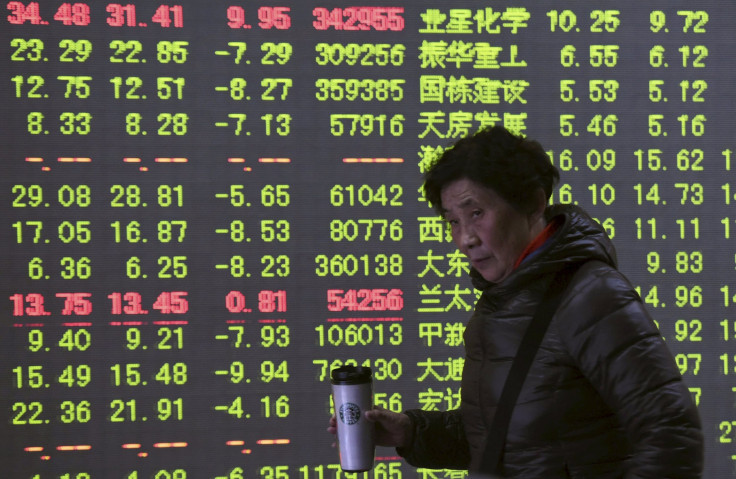Global Stocks Tumble On Falling Oil Prices, Outlook

Markets around the world were sharply down Wednesday, as European stocks slid to their lowest since October 2014, tracking Asian stocks in the wake of crumbling oil prices and a bleak economic outlook.
In Europe, the FTSE 100 fell 3.3 percent to its lowest since December 2012 and is set for its biggest single session loss in 2016. Germany's DAX and France's CAC were down about 3 percent, and were also set for their biggest fall of the year. The pan-European STOXX 600 was down 3 percent.
In the U.S., stock futures on the S&P 500 were down about 1.72 percent while those on the Dow Jones were down 1.8 percent and Nasdaq futures were down 1.93 percent.
In Asia, Japan’s stock market turned bearish as the Nikkei 225 closed 3.82 percent down. In Hong Kong, stocks hit a three-year low when the Hang Seng fell 3.82 percent and the Hong Kong dollar fell to its weakest level since 2007. China’s Shanghai Composite Index was down 1.03 percent while South Korea’s Kospi Index fell 2.4 percent. In India, the benchmark S&P BSE Sensex closed 1.72 percent lower while the rupee touched a 28-month low against the dollar.
The relentless slump in oil prices, which has weighed heavily on Russia — the world’s largest energy exporter — helped push the ruble down 1.8 percent to 80.156 against the dollar Wednesday. The currency had last breached the threshold in December 2014, forcing the Russian central bank to intervene with a rate hike.
On Tuesday, the International Monetary Fund cut its forecast for global growth for a third time in less than a year, as a slowdown in China hurts commodity prices and emerging markets.
Oil prices lost further ground Wednesday after U.S. government data showed growing crude stockpiles in the country. On Tuesday, a report from the International Energy Agency suggested markets could “drown in oversupply,” pushing prices Wednesday to as low as $27.32 per barrel.
Meanwhile, according to a report from the Institute of International Finance, investors spooked by uncertainty have pulled out about $735 billion out of emerging markets in 2015.
"I am quite pessimistic about the equity markets for the next two to three months. I do not see a 2008-style scenario, but I do see a bear market coming," Andreas Clenow, hedge fund trader and principal at ACIES Asset Management, told Reuters, predicting a further 10 percent fall.
© Copyright IBTimes 2024. All rights reserved.











